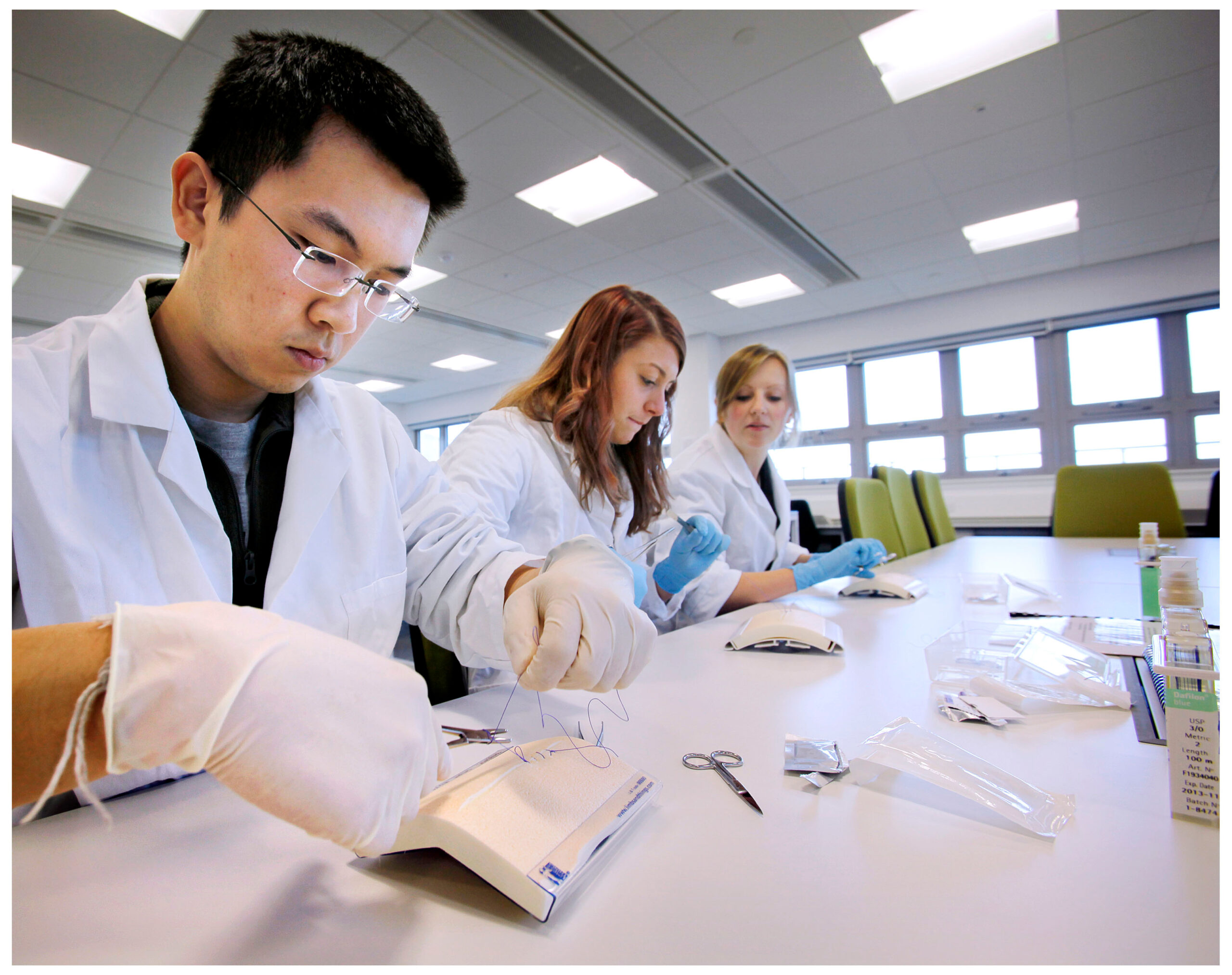 Lecturers and students share their thoughts on the focus on sustainability in undergraduate teaching in the Royal (Dick) School of Veterinary Studies.
Lecturers and students share their thoughts on the focus on sustainability in undergraduate teaching in the Royal (Dick) School of Veterinary Studies.
The Student Research Course Foundation (SRCF) is a 10-credit course taken in the second year of the five-year undergraduate Bachelor of Veterinary Medicine and Surgery (BVM&S) degree. It is designed around a student-led group research project, allowing students to self-select their group and topic. The aims are to develop basic research skills in preparation for the individual research project undertaken in years 3-5. To encourage inter- and multi-disciplinary connections, students are invited to propose project topics which are not directly related to the veterinary medical curriculum.
In 2015-16, the project focus was refined to directly draw on concepts of social responsibility and sustainability. Students were asked to frame their project within a chosen theme, and the options included ethics, technology, cultural influences, socio-economics, One-Health/One-Wellbeing, and local/global issues. This made the course aim of exploring themes that affect and connect animals, people, societies, countries and the world as a whole more explicit.
Andrew Gardiner BVM&S, Cert SAS, MSc, PhD, Dipl ECAWBM (AWSEL), MRCVS, Senior Lecturer and Clinical EMS Coordinator
Including sustainability within the second year course, SRCF, gave me an opportunity to encourage our students to really ‘think outside the box’.
Like most vocational degrees, veterinary medicine has a fairly tied-in curriculum to ensure that key professional competencies are met. This means that vets have far fewer subject choices available to them than other students. In SRCF we want to try to show students the benefits of inter-disciplinary thinking, which will make them more effective (and reflective) researchers and practitioners. Sustainability is an excellent topic for inter-disciplinarity since it needs to be approached from different, sometimes conflicting, angles. It involves consideration of both data/evidence and values. These two concepts can be challenging to unite, often requiring an element of moral and ethical debate to arrive at workable solutions to pressing problems. These are ideal skills for the veterinarian who is going to be faced with these sorts of dilemmas on a daily basis. The breadth of the concept of sustainability does very good work for us on this course. It fosters the types of inquiry and creative thinking skills we are trying to encourage.
Sharon Boyd BA Hons, MApplEnvSc, PgCUT, MSc, SFHEA, CMALT, Lecturer in Distance Student Learning
I have long had an interest in environmental and sustainable education, but was less sure how to include it within my teaching at the vet school.
In 2014, the Higher Education Academy and Quality Assurance Agency released an Education for Sustainable Development guidance document outlining the key graduate outcomes, skills and approaches to teaching and learning in UK higher education. Reading the guidance, I could clearly see how social responsibility and sustainability (SRS) is deeply embedded within veterinary medical education. I approached the Institute for Academic Development about undertaking a secondment project and was fortunate to have the opportunity to work on this in 2015. Rather than asking my colleagues and students to take on another task within an already full curriculum, I looked instead at demonstrating where SRS concepts were situated within the veterinary curriculum and professional competencies. Veterinary professionals are expected to deal with risks and uncertainties, and take account of the potential impact of their actions on their patients, clients, their community and the environment. We encourage our students and staff to think of local and global issues, their current and future roles within multidisciplinary teams, and the importance of health and wellbeing. All of these elements are core to the development of 21st century professionals in a rapidly changing world. The project also highlighted the innovative teaching and assessing methods being used in the School, for example through real-life simulations, place-based learning, student-led projects and debates. This has become a celebration of the good practice which underpins the learning experiences of our veterinary community at the Easter Bush Campus, culminating in our application for a University Social Responsibility and Sustainability Gold award in 2016.
Rosie Herrington, BVM&S student, intercalating BSc Neuroscience in 2016
Sustainability is something everybody in the world can do their part to enhance, including veterinarians.
There are many benefits of making our profession sustainable: from maximising profits for small animal practices to understanding the growing need for farms to increase their sustainability –these are only the benefits that we can immediately see. It can be easy for us to ignore the negative impact of being wasteful but as the media and general population becomes increasingly aware we will play more of a part in reducing landfill waste, rainforest destruction, CO2 emissions etc. In order to put this into practice we will need to educate and discuss with our clients, actively change some practice protocols and research viable alternatives – all of which can boost profits for vets and clients. Having done my SRCF 2 years ago, I think a topic on sustainability and social responsibility would cater well to this task – there is so much scope for our generation to affect this, and many inventions coming through the pipeline. This may be especially relevant for budding farm vets, as intensive systems are on the rise and prices fall, meaning that every pound matters for the farmer. An example of a current measure being used in some UK farms is recyclable sand bedding systems for dairy cows. These separate manure, water and sand so that all three can be reused on the farm while also maximising lying and milk production from the cows. This is great for the environment, the farmer and the cows.




